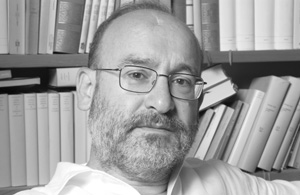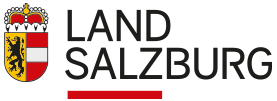|
International jury selected prize-winners
Nationality or place of residence are of no significance for the international composition prize awarded by the Salzburg regional government. The main prize is awarded on the basis of a suggestion by an international jury and the support prize by suggestion of the composer who is awarded the main prize. Candidates for the support prize should not be older than 40. The jury members were Hans Landesmann (former concert director of the Salzburg Festival), Josephine Markovits (director of the internationally renowned Festival d’automne in Paris) and Peter Hagmann (music critic of the Neue Zürcher Zeitung). The winner of the main prize in 2006 will be on the jury of the next Salzburg Music Prize (2009).

Salvatore Sciarrino has his own unmistakeable musical language
The jury reached a unanimous decision and explained it as follows:
“Salvatore Sciarrino was born in 1947 in Palermo. As a composer he has found his own very individual, unmistakeable language which in pronounced manner proclaims the possibilities that have been opened up to music beyond serial aestheticism.
“Sciarrino’s musical handwriting lives initially from soft sounds which are differentiated in various ways. It thus has its own way of objecting to increasing noise in our environment. Another characteristic of Sciarrino’s music is a new weighting of the parameters; its centre is not formed by pitch, it emanates much more strongly from the timbre, and by integrating aspects of noise-like sounds, it creates additional extensions. Ultimately the explosive tension between linear sounds and brief, rapid movements is a marked feature of Sciarrino’s music, the merging of impassivity and tense nervousness.
Sciarrino follows on in a very personal way from the aestheticism founded by Luigi Nono and continued by composers such as Helmut Lachenmann and Beat Furrer. “Salvatore Sciarrino has worked continuously to create an extensive œuvre covering a broad range of genres ranging from instrumental solo pieces to opera. His work with individual instruments has become particularly well known, for instance the Sei capricci for Violin (1976). Luci mie traditrici (1998), a piece for music-theatre also attracted great attention. This work rejects narrative principles and the music reflects rather the inner mental states of the characters, thereby achieving an intense sensual effect. As testified in much of his writing, in the same way that in his aesthetic thinking he refers back to stimuli from classical philosophy, Sciarrino the composer creatively analyses the musical past. For instance he composed a series of new cadenzas to Mozart’s concertos for solo instruments which he further developed in a piece of his own: Cadenzario for orchestra and soloists (1991).”
Salvatore Sciarrino: Curriculum vitae
Salvatore Sciarrino was born in 1947 in Palermo. He is proud of being free and the fact that it is impossible to assign him to a particular direction in music. At the age of twelve he began to teach himself to compose. In 1962 one of his works was first performed in public. Sciarrino regards his first works until 1966 as hard years of apprenticeship in which his personal style developed. His extensive list of works is being further developed in a constant creative process. After completing a classical school education and a few years of study at university Sciarrino moved to Rome in 1969 and then in 1977 to Milan. He has been living in Città di Castello since 1983.
He has composed works for the Teatro alla Scala, RAI, the Maggio Musicale Fiorentino, the Venice Biennial, for the Teatro la Fenice, Genoa Opera, for the Arena di Verona, for the Stuttgart Opera, the Théâtre Royal de la Monnaie in Brussels, for Frankfurt Opera, the Concertgebouw (Amsterdam), the London Symphony Orchestra, Suntory Hall (Tokyo) and for the following festivals: Schwetzingen, Donaueschingen, Witten, Salzburg, New York, Wien Modern, the Vienna Festival, the Berlin Festival, Holland Festival, Aldeburgh Festival, the Festival d’automne in Paris, Ultima (Oslo).
From 1969 to 2004 his works were published by Ricordi, since 2004 exclusively by RAI Trade. There is an extensive discography of works by Sciarrino. His compositions have been issued on 70 CDs with varying international labels. Sciarrino wrote the majority of his opera libretti himself and is the author of a large number of texts which are compiled in the book Carte da suono (DICIM – Novecento, 2001). Of particular significance is an interdisciplinary approach to musical form as written in his book Le figure della musica, da Beethoven a oggi (Ricordi 1998).
Sciarrino taught at the conservatories in Milan (1974-1983), Perugia (1983-1987) and Florence (1987-1996). At the same time Sciarrino directed further training courses and master-classes; of particular importance were those in Città di Castello from 1979 to 2000.
From 1978 to 1980 he was the artistic director of the Teatro Comunale di Bologna. He is a member of the Accademia di Santa Cecilia in Rome, the Akademie der Schönen Künste in Munich and of the Akademie der Kunst in Berlin. Sciarrino has been awarded several prizes, the most recent being the Prince Pierre de Monaco (2003) and the Premio Internazionale Feltrinelli (2003).
Sciarrino is at present working on the opera Da gelo a gelo for 2006 for the Schwetzingen Festival, the Opéra de la Bastille and Geneva Opera.
|

